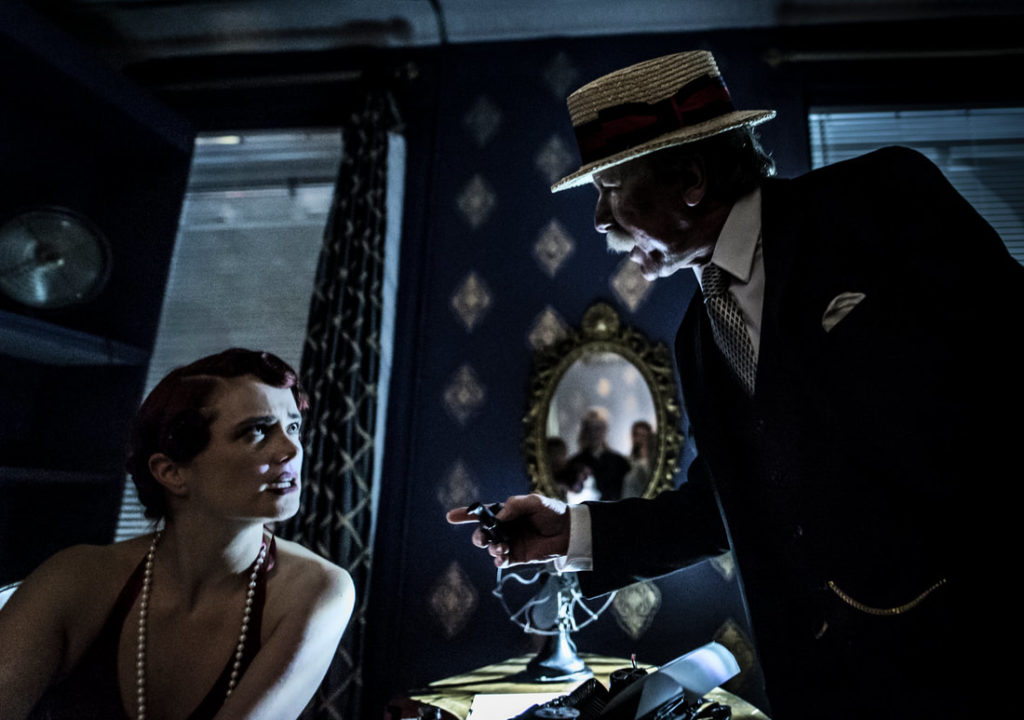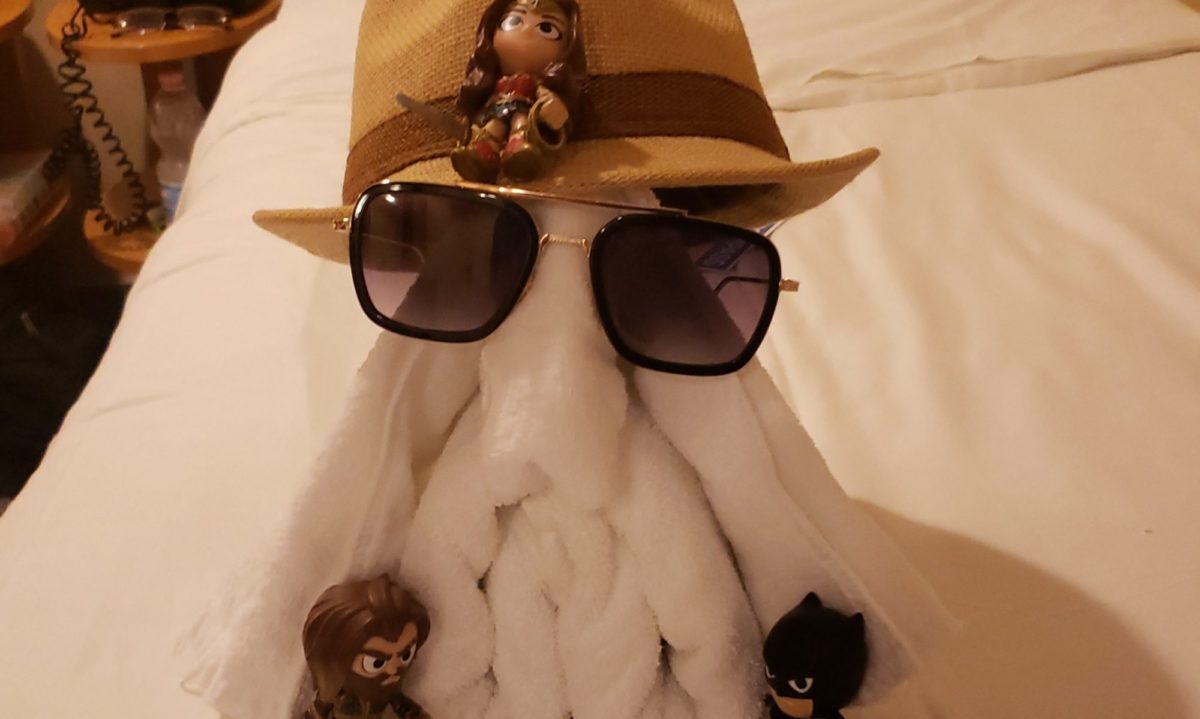“I didn’t want to start writing something of my own because to do that I’d have to start writing something. I love writing but hate starting. The page is awfully white and it says, ‘You may have fooled some of the people some of the time but those days are over, giftless. I’m not your agent and I’m not your mommy, I’m a white piece of paper, you wanna dance with me?’ and I really, really don’t. I don’t want any trouble. I’ll go peaceable-like.”
-Aaron Sorkin
A long time ago, longer now than it seems, in a place you’ve probably seen in your dreams–damn it. One day I will be able to say “A long time ago” without lapsing into Nightmare Before Christmas. Just not today.
Right, anyway, about seven months back, I said I was going to talk about the playwriting process as I began to work my way through my newest script. I did this despite knowing that first drafts take time and that I had a busy summer ahead of me. And that’s why we’re only now getting to part two.
Because a first draft is hard, you guys. Super hard. Especially since I’ve never really mastered outlines.
The trick with outlines
An outline is a decent idea. Helps you prep and organize your story. Figure out what the important story beats are, how to get to them, what they accomplish. A scene-by-scene breakdown that gives you the shape of your story and lets you plan out how to tell it.
See, I know this, I know all of this, and yet when it comes to starting a new script I throw all of that knowledge away and choose to just wing that mother every time. Every time.
And sometimes it’s a much worse idea than others. I got to the intermission of Jade Monkey and found I had no Earthly idea what to do in act two. And god DAMN but that is apparent if you actually read it. In a more recent script, an entire character got added because I realized that only one of the existing cast could be in the next scene, and he was going to need someone to talk to. And the new character may have become my favourite in that script, but… I begin to wonder if maybe that script was less… positively received than I thought at the time. But that’s another thing.
Anyway, outlines are good, outlines work. Especially if you’re co-authoring something. Lethargic Lad was extensively outlined so that Munsi and I could work on separate scenes while still writing the same play. My next co-written project will be the same. But here’s why I think I’ve never mastered them in my solo efforts.
“Is it because you’re lazy and impatient?” I hear you asking, and fine, yes, you could paint it that way, but… last time I talked about how before I commit to writing an idea, I bounce it around in my head. Let the characters take shape. Figure out what the key scenes I’m going to want to see are. Well, by the time I’ve done that, it’s like I can hear the character’s voices in my head, and the only way to shut them up is to write down everything they’re saying. And I tend to want to dive right into that rather than spend time on what feels like busy work.
Hell, half the time I DO try to write an outline, I end up filling it with swaths of dialogue anyway. Wait. Wait. Hang on. That doesn’t sound like a problem. That sounds like what I should do every time, doesn’t it… except, well, no, there is a catch. See, I have found in the past that when I write a chunk of dialogue out of sequence, it’s not always easy fitting it in later.
Take my latest, for example. One of the first things I wrote was a joke about a possible (and terrible) new name for the event management company at the center of the story. For obvious reasons, the joke had to go towards the end of the play, so throughout the process of cranking out the first draft I had this block of lines waiting to be sewn in. And by the time I reached that part of the script, the characterization of two of the leads had shifted, one of the other characters had a different name and was no longer onstage for that scene. I managed to salvage the joke, but it still took some work.
In fact, a lot of things had changed.
It might not be the story you intended
Turns out a lot of things got thrown out in the process. When I’d finally finished a draft, I went back and looked at the character notes I’d included in my “Dramatis Personnae” page, and was stunned about how much stuff I’d decided was important back in summer that I’d just straight-up forgotten about over the next few months. The bride was going to be a fellow event planner who couldn’t shut her work-brain off for her own wedding. The groom was going to be in a panic about everything being perfect. Neither of those things happened, and frankly, there just wasn’t time. The script isn’t that short as it is. If I included every little twist and complication I’d dreamt up in the early planning stages, this thing would’ve ended up three hours long. And I’m trying to cut back on three hour plays.
If the creative juices are going, if the characters are coming alive, the story might go in directions you hadn’t anticipated. Entire subplots have sprung up in plays because characters evolved in a way I hadn’t expected, or to put it another way, because when it came time to actually write the scene, suddenly new twists arrived that seemed too good to pass up.
You can plan and plan, but it’s in the first draft that the characters come to life and your story is truly born. It’s in writing the thing that you learn what the thing is, or at least what it could be.
But it’s a slog
In most cases, it also takes a great long time to do.
Edits are easy. I’ll cover that later, but the fact is you have a complete story to work with. Even if you’re tossing out whole sections, like I did with The Spy Who Left Me, at least there’s a framework. It’s easier to change something than create it, easier to polish a character’s voice than imagine it.
The first draft… there’s days or even weeks when no matter how much I think I’ve figured out about the script to come, I’m drawing a complete blank on the scene I’m actually working on. When a night of writing ultimately ends up being less than a page, then off to bed in defeat.
And then sometimes, like, say, August and September, when I was in rehearsal or on the web series set basically every day for six weeks, I can’t really work on the script at all. So when I come back to it, I need to reread the whole thing to get back into the groove.
Or so I tell myself. I’ve lost more than one night of writing to re-reading and tweaking everything I’ve already done, and I can’t honestly say that it was necessary every time. But sometimes when I just don’t feel like I have any new lines in the tank, a refresher does help me get back into everyone’s head a push forward. Even if it is just for a page.
And of course there are nights where I’ll poke away at the script for hours, barely making progress, when suddenly somewhere around midnight everything clicks and I’m hammering out pages like crazy while thinking “I really do need to get to bed, but I just have to finish this sequence.” One night I actually had to get back out of bed after a half hour because the scene was still playing out in my brain and I needed to get it down as soon as possible.
Turns out there’s a reason for that. As you get tired, the part of your brain that takes in and filters new information begins to shut down in preparation for sleep, leaving the other parts of your brain to fire away unimpeded. Your frontal lobe stops providing distractions or poo-pooing your ideas, and so the ideas begin to flow.
Which means that, and if you know me at all you know this is not a sentence I take any joy in saying, my colleague Ben is right: write drunk, edit sober. A few whiskeys have the same effect as approaching the sleep portion of your circadian cycle. And so, on this last draft, I gave that a try as I entered the home stretch of the first draft. And by “home stretch” I mean “last half or so.” Possibly “last two thirds.” I mentioned how busy I’d been last summer, right?
The waiting game sucks, let’s play Hungry Hungry Hippos
And then comes the hard part. The draft is done, and there’s nothing left but the dreaded “showing it to people I trust so they can tell me what they think.”
I never know if a first draft is any good. Never. It is an absolute mystery. As I’ll soon cover, in 2007 I wrote two scripts back to back: one was the worst first draft I’d ever done, and was immediately discarded, and the other was the best first draft I’d ever written and could practically have been staged as-was. But at the time, I could not have predicted either outcome. I thought the bad script had potential, and naturally was lacking a little in self-confidence when that one tanked and I started showing around the better one. Are the characters good? Do the jokes work? Is the story interesting? I cannot tell. The part of my brain capable of figuring these things out shuts down when faced with my own work and just throws up a test pattern saying “Well it seemed like a good idea at the time.”
And so I find those select few that I can trust for honest and useful feedback, send the script to them, and wait for them to find time to read it. Which… can take a while. And that can become frustrating, since my brain flicks from “Oh god, what if they think it’s horrible” to “I have to know what they think” the second I click “send” on the email.
Next time in this series (with hopefully less of a lull in between): the script is done, time to beat it with hammers until it’s good.



